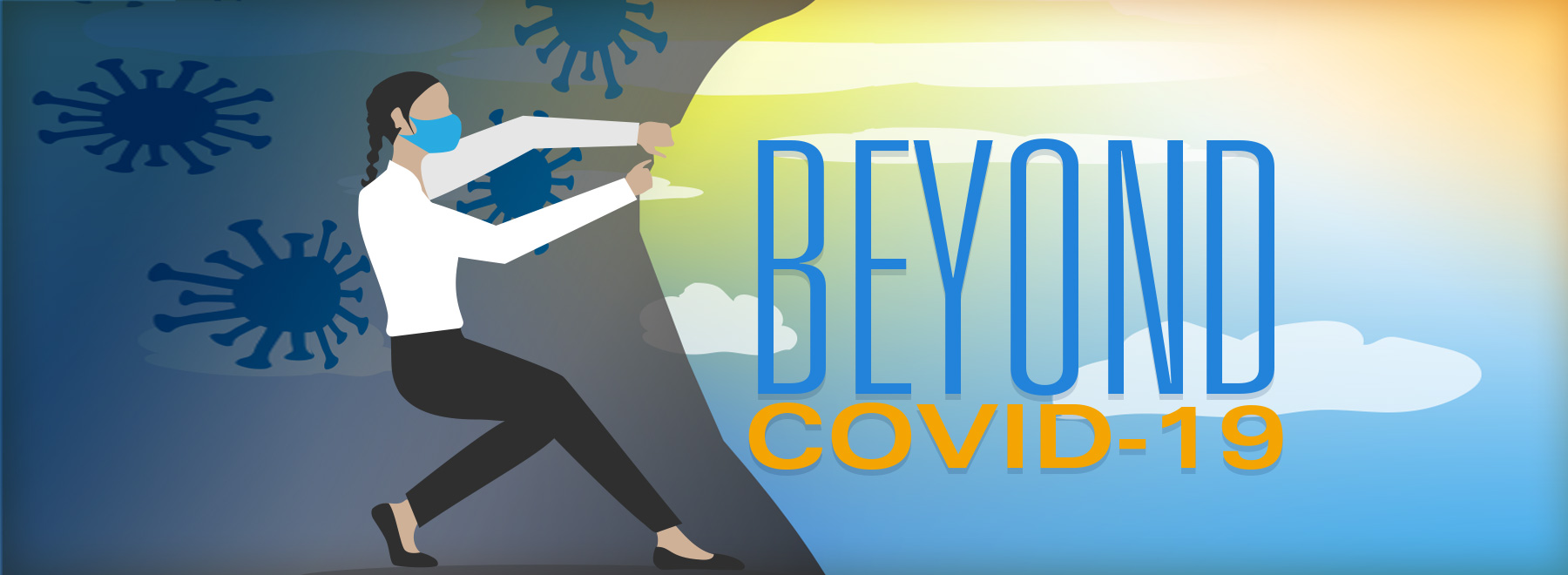Vaccines, variants, and advances: COVID-19 in 2021
The year 2020 is now in the history books, but COVID-19 is still here.
Now that there are multiple COVID-19 vaccines available and vaccination clinics have started across the state, University of Mississippi Medical Center infectious diseases physicians are giving some perspective on what to expect in this next phase of the pandemic.
About 8 percent of Mississippians had received at least one dose of a COVID-19 vaccine by Feb. 3, according to the Mississippi State Department of Health. Only 1 percent has received both doses. That’s far from the 60-to-70-percent threshold physicians and scientists think will establish herd immunity, said Dr. Bhagyashri Navalkele, medical director of infection prevention and control at UMMC.

“Our hope is that as the supply of vaccines increases and trust in the vaccine increases, enough people will take it and become immune,” she said.
Challenges for 2021 are new variants of SARS-CoV-2. Some recent notable ones have been documented in the United Kingdom, South Africa and Brazil.
“There is some concern that we could get the pandemic under control in the United States, but because of one of these variants, we could see an explosion of cases because they appear to be more transmissible, meaning they spread more easily from one person to another,” Navalkele said.

Dr. Jason Parham, director of the Division of Infectious Diseases, said the longer this pandemic goes on, the more chances the virus that causes COVID-19 has to make even more of these “opportune mistakes” – changes in the viruses’ genome – that “could make it more infectious, more deadly, or evade vaccination efforts.”
“Within a few months, I think we will have substantial spread of multiple variants within the United States,” Parham said.
The good news is that “the same prevention measures we are already using, such as masks, social distancing and hand washing, are going to help prevent the spread of new variants as well,” Navalkele said.
“I don’t think there is a reason to be terrified,” of new variants, Parham said, as long as people act quickly and continue to follow prevention guidelines. If not, there could be other spikes in cases, hospitalizations and deaths, followed by relaxed safety measures that give way to another spike in infections.
How long will the U.S. remain in pandemic-mode?
It’s hard to put a firm timeline on a return to normal – or a new normal.
“In summer we may have a better idea as we ramp up vaccination efforts,” Navalkele said. “People should get a vaccine as soon as it is available to them and get whichever one is available.
“Both (the Pfizer-BioNTech and Moderna vaccines) are effective and safe, and there is not much difference between them.”
After vaccination, both physicians urge people to keep wearing masks, washing their hands, maintaining physical distance from others and avoiding large crowds this year.
Parham said he is entering 2021 “with a lot of hope.” Compared with this time last year, “We now know a lot more about COVID-19, the virus that causes it, effective treatments and management that lower the chance someone will need the ICU or a ventilator,” he said.
Still, COVID-19 has had a heavy toll on hospitals, clinicians and the people who become sick.
“We need to get to herd immunity in a safe way, keep hospitalizations down and bring an end to this pandemic,” Navalkele said.
“Ultimately, we are going to reach herd immunity,” Parham said. “The question is whether we are going to achieve it primarily through infection or vaccination.”
Currently, there are more people who have been infected than have received a vaccine. Unless these switch, Parham said, there will be hundreds of thousands of Americans who will die between now and the end of the pandemic, in addition to the 450,000 who have died of COVID-19 so far.
He said COVID-19 will not be around forever, but the lessons we learn from it should be.
“We’ve seen technological advances, robust industry and government partnerships, novel vaccine technology we’ve never used before, new treatments and new perspectives on the spread of illness in communities,” Parham said.
“Masks and hygiene are really saving peoples’ lives, and not just from COVID-19,” Navalkele said. “These protective measures work for all respiratory infectious diseases, such as the common cold and the flu.
“Don’t throw away your masks because they may be here to stay.”
The above article appears in CONSULT, UMMC’s monthly e-newsletter sharing news about cutting-edge clinical and health science education advances and innovative biomedical research at the Medical Center and giving you tips and suggestions on how you and the people you love can live a healthier life. Click here and enter your email address to receive CONSULT free of charge. You may cancel at any time.



